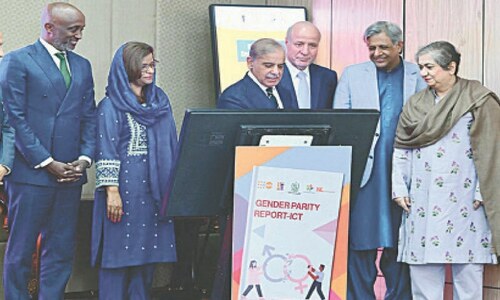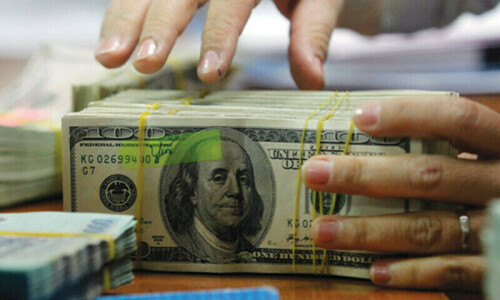ISLAMABAD, June 10: The agriculture sector performed poorly and grew by only 1.5 per cent during the financial year 2007-08 against the target of 4.8 per cent, making the nation vulnerable to food insecurity and badly hurting economic growth.
Major crops and forestry declined by three per cent and 8.5 per cent respectively, according to the Pakistan Economic Survey 2007-08. Livestock, minor crops and fisheries somehow averted an apparent collapse of the entire agriculture sector.
Cotton, which accounts for about 1.6 per cent of gross domestic product (GDP) and a major source of foreign earning, grew less than last year. The country produced 11.7 million bales, compared to 12.9 million bales last year.
The survey says that heavy rainfall in May 2007 in Punjab, where sowing was already 2.2 per cent less than last year, caused poor germination. Cotton sowing in Sindh was 6.6 per cent less than last year. A severe attack of the leave curl virus also hit the crop.
Similarly, the wheat production target of 24 million tons was missed by 1.5 million tons. The output was 21.7 million tons -- 6.6pc less than last year and 9.9pc less than the target. The reasons were about 40pc less use of fertilisers and availability of 23.3pc less water for the Rabi season. The price of a 40kg DAP fertiliser increased to Rs3,000 from last year’s Rs850.
The survey showed that the country was unable to produce the annual 124kg per capita flour. An analysis of the last 12 years showed that the per capita flour target had been missed for eight years.
Among major crops, sugarcane performed well. The country produced 63.9 million tons of sugarcane because of a 20pc increase in the sowing area.
Pakistan also missed the rice target of 5.57 million tons. The production was 5.56 million tons, three per cent less than the target and 2.5pc lower than last year’s production. Rice is a cash crop and accounts for 1.1pc of GDP.
Provisional estimates show that the country produced 0.833 million tons of oilseeds. But, this can only meet just over one-fourth of the requirement. Over 72pc of edible oil is imported. The local edible oil market is vulnerable to international price increase. Over the past six months, the price of cooking oil has increased from Rs70 per kg to Rs140.
The economic survey stressed the need for increasing the sowing area of oilseeds.
The production of potato has declined by 3.8pc, but that of moong, masoor and maash increased by 28.4pc.
Livestock, which accounts for 11pc of GDP, registered a 3.8pc growth and fisheries grew by 11pc.
Forestry followed the traditional negative growth pattern for the fifth year in a row and declined by 8.5pc.
The survey says that the growth performance of the agriculture sector over the past six years fluctuated between 1.5pc and 6.5pc.
















































